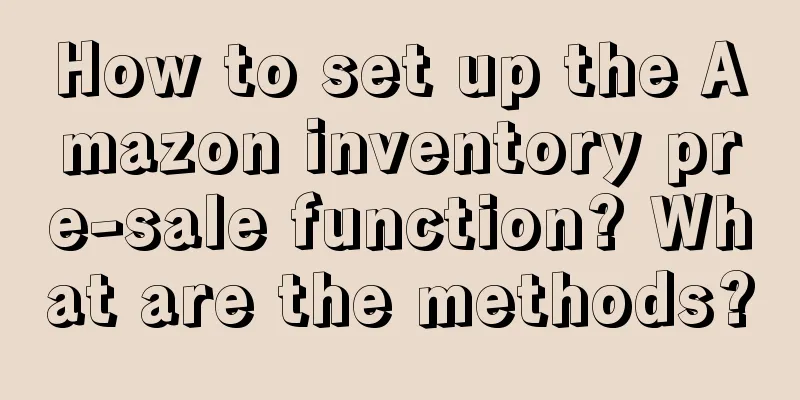B2B Marketers' Survival Guide

As a CMO, what's the sentence you hate to hear the most? "The whole department is going to be laid off?" If that were true, you would probably just be surprised and say “I didn’t expect it to be so sudden…” and not be so angry that you would want to slam the table and curse. But when sales complain that "what the marketing department does is worthless, they waste money and don't bring any convertible business opportunities", many CMOs have already rolled up their sleeves and are ready to go to war. I cursed in my heart, "We are so busy organizing events every day; begging for free cooperation opportunities; fighting wits and courage with suppliers to negotiate prices... In the end, you say the work of the marketing department is meaningless? You gave so many leads but didn't follow up properly, and you still say we didn't do a good job?" I can’t calm down without writing a long email detailing my achievements 1, 2, 3 or talking to the CEO. I wonder if you have had this experience? According to my incomplete observations based on a small sample size, not only CMOs, but many of our marketing people (even those in a one-person marketing department) are often PUA-ed because they cannot quantify output or have unsatisfactory ROI, and even feel like resigning (but are unwilling to do so). I recently talked about this with a senior VP of sales at a tech company and he said, “Marketing is hard work and I appreciate it, but the number of leads we get after our biggest event of the year is so small it’s a little hard to justify…” I was shocked and asked, "Is it because the target customers are not right?" He replied, "The marketing department does not know who the real decision makers are, and invited a bunch of technology enthusiasts. The scene was lively, but there was no output... Sales pressure is very high now, and it is not enough to just focus on branding. Besides, the quality of our leads is usually very poor. Can you help me find some ways to improve it?" I originally wanted to refute him, but from his perspective, I can understand that the most important thing at the moment is performance. So, I talked about my suggestions from the perspectives of inquiries, leads, content, etc., and he agreed very much after listening to me, "If the marketing department can do these, then the sales department will definitely cooperate with them..." I have sorted out my thoughts in the past few days and would like to share them with you. 1. Follow up on active inquiries from good customers"Inquiry" is a new word I learned in recent years. When I first heard it, I looked it up on the Internet. The original meaning is a customer's inquiry for a price, and it is widely used in international trade. In recent years, many companies have used this term to replace "inbound marketing". It counts as when customers take the initiative to ask about products, solutions, trials, etc. If the follow-up is smooth, the conversion rate is often the highest. In the past, after receiving an inquiry call, we would just transfer it to the corresponding salesperson for follow-up. Nowadays, the way of inquiry is not limited to phone calls, but more often it is through leaving messages, or even asking detailed questions after downloading the white paper, etc. Marketing people can no longer simply write down “your name and contact information” and pass it to sales. It is also necessary to interact, answer questions, classify information and "label"... We all understand the principle, but it is difficult to do it. "I don't know what to say to the customer", "The salesperson said not to let us contact the customer", "We don't have a dedicated telemarketing team..." Have these words appeared in your mind? Sometimes when I receive a call, I don't even dare to ask what the customer is or what company they are, let alone ask where the information was obtained and what the main needs are. I have also seen people throwing contact information into the sales group and then timidly saying "Could any sales boss follow up, thank you", and nothing else happened. I understand salespeople. When they receive such information, they are a little enthusiastic at first. But after calling back, they get annoyed when they find out that it is a competitor’s fake name or irrelevant error information. Some people call from the front desk landline, which is almost the same as cold calling. After hearing “the wolf cry” many times, they start to make excuses to deal with it. They often mutter, “The information provided by the marketing department is not as good as what I can find on Qichacha or bidding websites. I spent so much money on setting up the official website and shooting videos, but there is no effect at all…” My suggestions are: 1. The marketing department prepares a list of sales pitches in advance (even if the customer service team follows up, the marketing department should also be involved in the formulation of the sales pitches).This list needs to be communicated and agreed upon with sales in advance to clarify what information they want to know before following up. For example: How did you hear about us? What industry is your company in? I will send you some cases specifically for you? What information do you want to know? ... "You can take a look at our company information", "Here are our latest solutions..." Don't worry that customers will feel annoyed. As long as you are sincere and polite in your communication, customers who are truly interested and want to know will patiently explain their problems and talk more. On the contrary, troublemakers will be impatient or find faults to make things difficult. 2. After receiving the information, carefully classify and sort it out, and then hand over the effective leads to salesIt would be best if there is a system that can record automatically. If not, use a simple Excel to organize the inquiry information after the interaction. Including contact information, customer needs, products of interest, channels for obtaining information... These customers' personal information and behavior data are very valuable first-hand data. Do some preliminary screening during communication, pick out some customers who are uncertain and may not have real needs, and mark them clearly for the sales or channel department to judge. Marketers should also have some understanding of the customers and existing partners that sales are currently following up. For example, some companies are tertiary industry companies under a major customer at first glance, and it is best to have existing sales representatives follow up. 3. Marketers must receive simple sales training.The first two points are still a bit difficult for newcomers to the market. Perhaps you can humbly ask the sales department for a simple training. For example, how to judge whether it is a real customer, how to respond to direct inquiries from customers... Experienced marketers will regard inquiries as valuable market research and a window to understand customers. The premise is not to be too long-winded and nagging, and to know how to communicate simple sales skills. 2. Quantitative clue evaluation criteriaOK, now that the forms mentioned above are in order, should we give them to the sales staff and ask them to follow up 24 hours a day? It depends on the situation. After all, the inquiry information is not really considered an MQL, and the marketer or the lead management department of the marketing department (sometimes it is telephone sales) still needs to score the leads. Similarly, the leads obtained after marketing activities also need to be communicated before they can be considered MQLs. A common misunderstanding is to treat contact information as leads, transfer them to sales without asking about them later. (Indeed, part of the reason is that sales are unwilling to inform about the progress) Mature marketing departments will use BANT (budget, role authority, demand, time point) to determine whether it is an MQL. Some companies also set cold and hot lead scoring standards in SCRM and CRM systems. (There is a lot of relevant content on the Internet) The focus is on discussing with sales to develop a feedback mechanism when digital marketing is just starting out and there are no mature systems and processes. For example, if it is a hot clue, it can be simply divided into three levels: The first level is when the customer has obvious needs, has known about the product before, and has a budget. Sales must contact within 24 hours. The second stage is when the customer expresses his intention and hopes that the supplier will come to the customer before the sale. The salesperson will contact the customer within 48 hours to get more information. The third level is that the customer is interested, but has not yet established a project and plans to purchase within a year. Sales will establish contact within 72 hours and send customer cases. Each company has different product forms, unit prices, and sales models. It is best for the marketing department to invite the sales team to fully participate in the formulation of rules. Both parties "sign and seal" the standards of MQL and SQL, and set up a decision-making group to handle unclear cases. It is also important to remind you that before judging the needs, you should first match the basic data with the past feedback information. For example, has the company to which the contact belongs participated in the event before? What was the previous feedback? What might the customer's needs change this time? Analyze the above issues more and communicate with sales, and sales will naturally think that marketing people know something and are brothers in the same trench with them. 3. Participate in the whole process of lead conversionEven after doing all of the above, the conversion rate may still be low. Then try to continue to do more at each stage of the customer experience: 1. Before: When acquiring leads, don’t blindly grab everything and only focus on traffic without precision. You will spend energy and money, but not only will there be no positive effect, but it is more likely to have a negative impact on customers who really have needs. In the planning stage of marketing activities, email marketing, SEM and other marketing methods, you need to know where the target customer group is and actively reach out to them. Only efficient leads can form a closed loop of conversion . The higher the enthusiasm of sales participation, the more attention and investment the company will pay. 2. Medium: Whether it is on-site feedback at an event or active information retention on the official website, marketers can spend more time on interaction. For example, collect feedback information in a targeted manner, actively send presentation documents and industry customer cases to customers, continue to organize small-scale industry exchanges, regular online care, new technology use training, etc. After establishing contact with customers and generating trust, with permission, give the customers who are most likely to have purchasing needs to sales for follow-up, so as to accumulate the marketer's credit. 3. Post-sales: When following up with customers, marketers can refine sales pitches, scenario stories, product and case materials, organize one-on-one customer workshops, etc. They can also help find influencers of customer decisions (experts, media, third-party organizations, etc.) to help sales promote lead conversion . If we can fully communicate with sales in these three aspects, reach consensus and continuously optimize. With joint efforts, the effect will definitely not be bad. Sometimes sales do not want the market to intervene in customer communication, or they are worried that they will not use their strength properly and make things worse (there may be other reasons, each company and each person's situation is different). Marketing is a professional job. How to reach customers on a large scale, how to disseminate content, how to use self-media, how to make content more attractive... should all be the strengths of marketers. Don't just bury your head in a cubicle or run around at exhibitions, but think more about why you are doing what you are doing and whether there are better ways to achieve better results? The more professionally you think from the perspective of the market and customers, the more respect and recognition you will get from both inside and outside. This rule has not changed over the years and will not change in the future. Author: , WeChat public account: Time Notebook This article is authorized by @时光笔记 to be published on Operation Party. Any reproduction without permission is prohibited. The title image is from Unsplash, based on the CC0 agreement |
>>: 18 days after the hit of Wonderful Duck
Recommend
How do freelancers price themselves?
The income of freelancers is quite fluctuating, bu...
In 2023, what else can companies do to acquire customers online at low cost?
Corporate marketing has always faced an old proble...
Xiaomi's chief copywriter.
As a diversified technology brand, Xiaomi's br...
Is universal empathy the new standard for hit dramas? How does "The Story of Rose" make its brand stand out?
The story of Rose became a big hit, and it was not...
What is an Amazon bank statement? What should I do if I need a bank statement?
Amazon sometimes verifies the seller's bank ac...
The first large-scale incentive after the WeChat Store name change is here
After changing its name to Video Store, WeChat Sto...
What is the KYC audit for Amazon Europe? How can I be sure that the audit has started?
If an Amazon merchant triggers a KYC audit, then b...
In the period of consumption downturn, we should pursue "good failure" rather than "reducing costs and increasing efficiency"
In the current period of sluggish consumer market,...
Is it possible not to participate in Amazon video verification? What are the requirements for opening a store?
On Amazon, you can do video verification. After do...
Douyin's "Golden Pig" can't bring short dramas to the forefront
Clarify your goals, test and optimize, choose the ...
How can I change the mobile phone number bound to Facebook? Can I change my Facebook username?
Binding your phone number is one of the important ...
WeChat issued an announcement to regulate marketing content. Is this reasonable?
This article questions the recent release of WeCha...
The pre-sale of 618 is cancelled this year. Are the anchors worried?
During the 618 promotion in 2024, e-commerce platf...
How can Haidilao, which has “changed its heart”, ask for “change”?
The author of this article introduces the fact tha...
Xiaohongshu's traffic code for the new year has been "mastered" by them
What new changes will there be in Xiaohongshu'...









